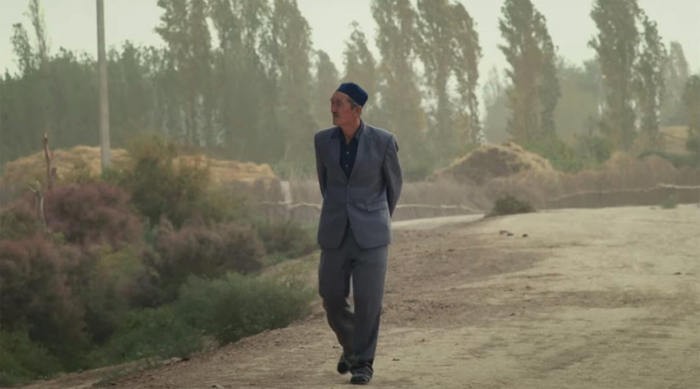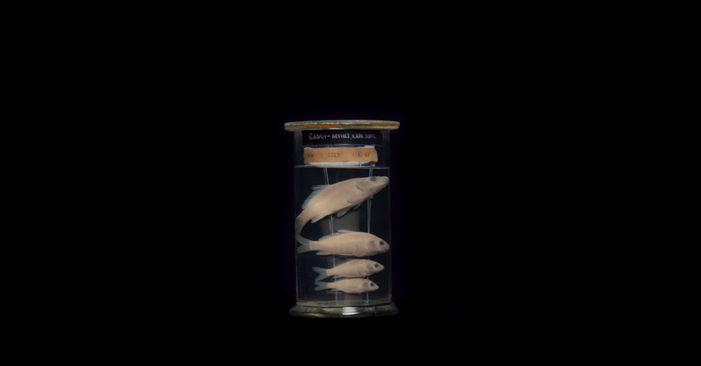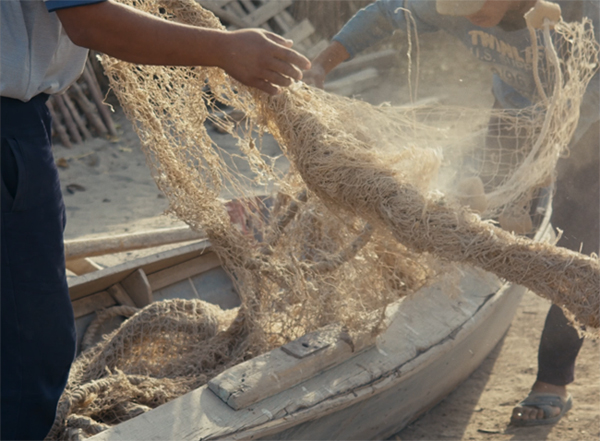Mer d'Aral
-
Réalisé par Mila Zhluktenko, Daniel Asadi Faezi • Écrit par Mila Zhluktenko, Daniel Asadi Faezi
-
Ouzbékistan, Allemagne • 2022 • 13 minutes • Couleur
- Réalisation :
Mila Zhluktenko, Daniel Asadi Faezi - Écriture :
Mila Zhluktenko, Daniel Asadi Faezi - Image :
Sadriddin Shakhabiddinov - Son :
Fazliddin Musurmonov - Montage :
Mila Zhluktenko, Daniel Asadi Faezi - Voix off :
Kallibek Nagmetov - Musique originale :
Giovanni Berg - Mixage :
Andrew Mottl - Étalonnage :
Nicholas Coleman - Sound design :
Andrew Mottl
- Production (personne) :
Fozil Yunusov, Mila Zhluktenko, Daniel Asadi Faezi - Production (structure) :
O'zbekiston Kinematografiya Agentligi - Coproduction :
Lotas Film - Ayant droit :
Lotas Film, O'zbekiston Kinematografiya Agentligi, Daniel Asadi Faezi - Accès au fichier des sous-titres français :
La Cinémathèque du documentaire
- N° ISAN :
non renseigné
Résumé
"Une estampe aux couleurs passées fait place à des poissons, un oiseau et un renard empaillés sur fond noir, avant qu'un plan serré sur une main fripée par le passage du temps ne raccorde avec celui d'un paysage de dunes balayé par un vent de sable où rouille la carcasse échouée d'un bateau. Uralbay Utegenov est un survivant. Son corps courbé parcourt l'immensité du désastre, qu'il devra un jour expliquer à Sarbi, sa petite fille : l'assèchement de la "Mer d'Aral", lac salé à cheval sur le Kazakhstan et l'Ouzbékistan – dont la superficie originelle équivalait à deux fois celle de la Belgique – causé par la culture intensive du coton démarrée sous l'ère soviétique. Daniel Asadi Faezi (The Absence of Apricots, VdR 2018) et Mila Zhluktenko (Find Fix Finish, VdR 2017) ont filmé les ultimes habitants des rives ouzbèkes qui ont vu disparaître, avec la désertification, la quasi-totalité des ressources halieutiques qui assuraient leur subsistance. Aux antipodes d'un traité explicatif, Aralkum est l'évocation sensorielle d'une perte incommensurable, qui nous invite à réfléchir sur l'impact mortifère de notre démesure."
(Emmanuel Chicon - Visions du Réel)
"The images of this documentary plunge the viewer into a setting reminiscent of science-fiction, a land that was once on the sea and is now inhabited by just a bunch of people, the last survivors of an exodus. An area whose ecosystem was based on fishing has been almost completely disrupted by extensive cotton farming in neighbouring territories. The sea has receded, the weather has changed, many have left. Those who stayed struggle every day to make a living out of the sea and the soil. The pictures of those bodies and spaces in which vegetation fights the desert, once occupied by water, become images of a post-apocalyptic scenario in which the actual place is turned into a sort of melancholy border space suspended between life and death. This feeling is heightened by the contrast provided by texts and images from the past that tell and show the richness that once was, the colours and light of a fecund life, that currently only lives in the memories of the elderly who slowly wander through the deserted streets."
(Festival dei Popoli)
Mot(s)-clé(s) thématique(s)
Sélections et distinctions
- 2023 • Euganea Film Festival • Padoue (Italie) • Compétition
- 2023 • FIPADOC - Festival International Documentaire • Biarritz (France) • Sélection courts métrages
- 2022 • Visions du Réel • Nyon (Suisse) • Prix du jury pour le meilleur court métrage
- 2022 • Festival dei Popoli • Florence (Italie) • Section Habitat
- 2022 • Doclisboa - Festival Internacional de Cinema Documental • Lisbonne (Portugal) • Sélection officielle
- 2022 • DokuFest - International Documentary and Short FIlm Festival • Prizren (Kosovo) • Sélection officielle
- 2022 • BELDOCS - International Documentary Film Festival Belgrade • Belgrade (Serbie) • Mention spéciale du jury
Comment avoir accès au film ?
-
Édition DVD
- Il n'existe pas d'édition DVD à notre connaissance
-
Accès VOD
- Il n'existe pas d'accès en VOD à notre connaissance
- Distribution
- Aide sur les moyens d'accéder à un film


